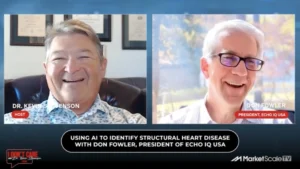Protecting America’s Cyber Infrastructure
The Energy Exchange explores the complex and critical intersection of energy, money and technology. Experts will use their insights and forecasts to outline what energy is available to us, the costs associated with that energy production and its use, and the technological innovations changing the way we utilize Earth’s resources to power our way of life.
On this episode of The Energy Exchange, Host David Hidinger talked with Dr. Ondrej Krehel, CEO and Founder of LIFARS, a global leader in Incident Response, Digital Forensics, Penetration Testing, Ransomware Mitigation, and Cyber Resiliency Services. They talked about Krehel’s career, his work at LIFARS, and critical cyber infrastructure.
Known for his experience in digital forensics and ethical hacking, Krehel has over two decades of experience in the industry. He started in this field when he was 19 years old in Czechoslovakia, with his primary role in the U.S. to stop the threats of nation-state hackers. Specifically, his team worked on oil tech and pharma hacker intrusions. He is also certified as an ethical hacker and instructor.
“It means that you are capable of performing ethical hacking into clients’ environments,” Krehel said. While some hackers do it maliciously, ethical hackers attack a company’s systems to find weak spots and help find vulnerabilities to make a more robust network.
Throughout his career, he noticed that work started on the government level but shifted to the private sector. Initially, it was in financial services where there were lots of private transactions related to economic activities. Other industries are still catching up in cyberspace.
“So, I would say financial industries had an upper edge with cybersecurity and took it more seriously because they’ve seen the first commercial accounts being breached,” Krehel said. “They saw the monetary losses.”
Listen to hear more about Krehel’s career, cybersecurity, the Colonial Pipeline Hack, and protecting America’s critical cyber infrastructure.
Follow us on social media for the latest updates in B2B!
Twitter – @MarketScale
Facebook – facebook.com/marketscale
LinkedIn – linkedin.com/company/marketscale








